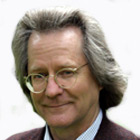People of faith have rejected the benefits of an open mind and, perhaps through choice, are destined to repeat their bloody pasts
If one were asked to prescribe the fundamental condition for a good world, it would be: peace and freedom for all, where "freedom" means personal autonomy and mental liberation from prejudice, superstition, ignorance and fear. Cynics will no doubt think this a saccharine sentiment merely, if only on the grounds that it is unattainable and that one had better stick to the realities of a world in which the majority of people are trapped in economic and intellectual prisons made by history, perpetuated and promoted by demagogues and the greedy and powerful.
The cynics are of course right about the realities, but that does not mean one should shrug one's shoulders and capitulate. There is something one can do to fight back, by taking part in the battle that underlies it all: the battle (to put it in Voltaire's terms) between those who seek the truth and those who claim to have it.
On one side are those who inquire, examine, experiment, research, propose ideas and subject them to scrutiny, change their minds when shown to be wrong and live with uncertainty while placing reliance on the collective, self-critical, responsible and rigorous use of reason and observation to further the quest for knowledge.
On the other side are those who espouse a belief system or ideology which pre-packages all the answers, who have faith in it, who trust the authorities, priests and prophets, and who either think that the hows and whys of the universe are explained to satisfaction by their faith, or smugly embrace ignorance. Note that although the historical majority of these latter are the epigones of one or another religion, they also include the followers of such ideologies as Marxism and Stalinism – which are also all-embracing monolithic ownerships of the Great Truth to which everyone must sign up on pain of punishment, and on whose behalf their zealots are prepared to kill and die.
If anyone does not know how to pluck from history and the contemporary world examples of these opposing mindsets and their operation then he is either deaf, dumb, blind and illiterate – or he is one of the creatures of faith.
In the aftermath of the Reformation in the 16th century, Ignatius of Loyola founded the Jesuit Order as an army of defence against the attack on the One True Church. The Jesuits saw that the reformers had learning and intelligence on their side; they were translating the Bible into vernacular tongues, and encouraging lay people to read it, and when laymen did so they could see that the doctrines and practices of the Roman church were a mountain of rubbish. The Jesuits aimed to be an army of very smart casuists and propagandists, skilful in rhetoric and argument, trained to counter the reformers' charges, not interested in truth but in Catholicism's tendentious version of it.
It is said that the ignorant are condemned to repeat history, but it is equally true that those who know history can repeat it on purpose. In the US the proponents of intelligent design and creationism have taken a large leaf out of Loyola's book of strategy, and are training a new breed of jesuitical defenders of faith against the onslaught of science. Only look at the exam set by creationist William Dembski for his Intelligent Design and Christian Apologetics course at Southwestern Baptist Theological Seminary. The Final exam questions are as follows (and can be seenhere):
1. You are a panelist at the premier showing of Richard Dawkins's BBC production debunking religion titled "The Root of All Evil?" Richard Dawkins is there on the podium with you. After the showing of this program, you are asked to present a brief response. Throughout the program, Dawkins emphasises that evolutionary theory is confirmed by overwhelming evidence whereas religious belief is as a matter of blind, unthinking faith. Challenge him in your response on both points: spend half of your response showing that evolution is not nearly as overwhelmingly confirmed as Dawkins makes out; also, indicate how, at least when it comes to the Christian faith, religious belief can be well-supported evidentially (eg indicate lines of evidence supporting the resurrection and the reliability of the Scriptures).
2. You are an expert witness in the Dover case. You've been asked to summarise why you think intelligent design is a fully scientific theory. Do so here. Sketch out ID's method of design detection and then show how it applies (or could apply) to biological systems. Further, indicate how ID is testable: what evidence would confirm ID and what evidence would disconfirm ID?
3. Barbara Forrest and Paul Gross have characterised intelligent design as part of a vast rightwing conspiracy to undermine our democratic institutions by substituting religious dogma for scientific theory. Accordingly, they see intelligent design as part of a "Wedge Strategy". Briefly recount the history of the "Wedge" and indicate why Forrest and Gross may be wrong to paint it in conspiratorial terms. Is the "Wedge" a legitimate cultural movement? Explain.
4. You've been assigned to teach six Sunday school lessons on intelligent design over six consecutive Sundays. Each lesson is an hour and fifteen minutes. Outline how you would conduct these lessons. What would you have people read? In what order? What would you present? What would you want participants to take away at the end of the six weeks?
As this shows, the training at the seminary is aimed at producing infantry for a religious war against science and reason; proof of this, and in Dembski's own words, lies in another of his exam questions for the same course:
You are the Templeton Foundation's new program director and are charged with overseeing its programs and directing its funds. Sketch out a 20-year plan for defeating scientific materialism and the evolutionary worldview it has fostered if you had $50,000,000 per year in current value to do so. What sorts of programs would you institute? How would you spend the money?
Apart from the interesting aside on the Templeton Foundation, which exists to keep religion confused with and implicated in science, this makes as clear as day the tendentious purpose of an "education" at the Southwestern Baptist Theological Seminary.
When the faithful of any faith win the doors are open to horrors ranging from Muslims killing Christians in Gojra, women being whipped for wearing trousers in Sudan, Sunnis blowing up dozens of Shias in Iraq, oppressive theocracies, reactionary social policies, prejudice against gays and women, pogroms against Jews, slaughter of kulaks, starvation of millions as a result of ideological nostrums such as collectivisation, wars, communities separated by walls in Israel-Palestine and Ulster – the litany seems endless.
Someone once said "by their works ye shall know them". Indeed. Do not venture the fig-leaf of charitable works – the non-zealous do these too, and for better motives. The true contrast is with antibiotics, surgery, television, lighting and heating, air travel – the litany is equally endless. And again, by their fruits we know them. Do not venture the canard that science produces atom bombs and mustard gas, as if mentioning them justified the atrocities committed by faith on the bodies and minds of multitudes, for these applications of science are the result of political and ideological decisions about how the findings of science are to be used. Scientists do not start wars with each other over different theories of nitrogen fixation or whether black holes or boson stars lie at the heart of galaxies. Theologians, however, have committed many murders over the word "and" in the formula "the father and the son": if you want a lesson in lunacy, go and find out why; it makes all my points for me.
To summarise: the battle for peace and freedom is a battle about mindsets. The battle lines are clear. It is fought on many fronts: against faith-based schooling, against the overweening privilege accorded religious lobbies in society, and in the agora of public opinion. It would be easy to take the next step of showing that the mindset which looks for and tests the facts rather than shores up ancient edifices of authority is likely to make the world a fairer one economically and in power relations too. But that discussion is for another time.
Comments









